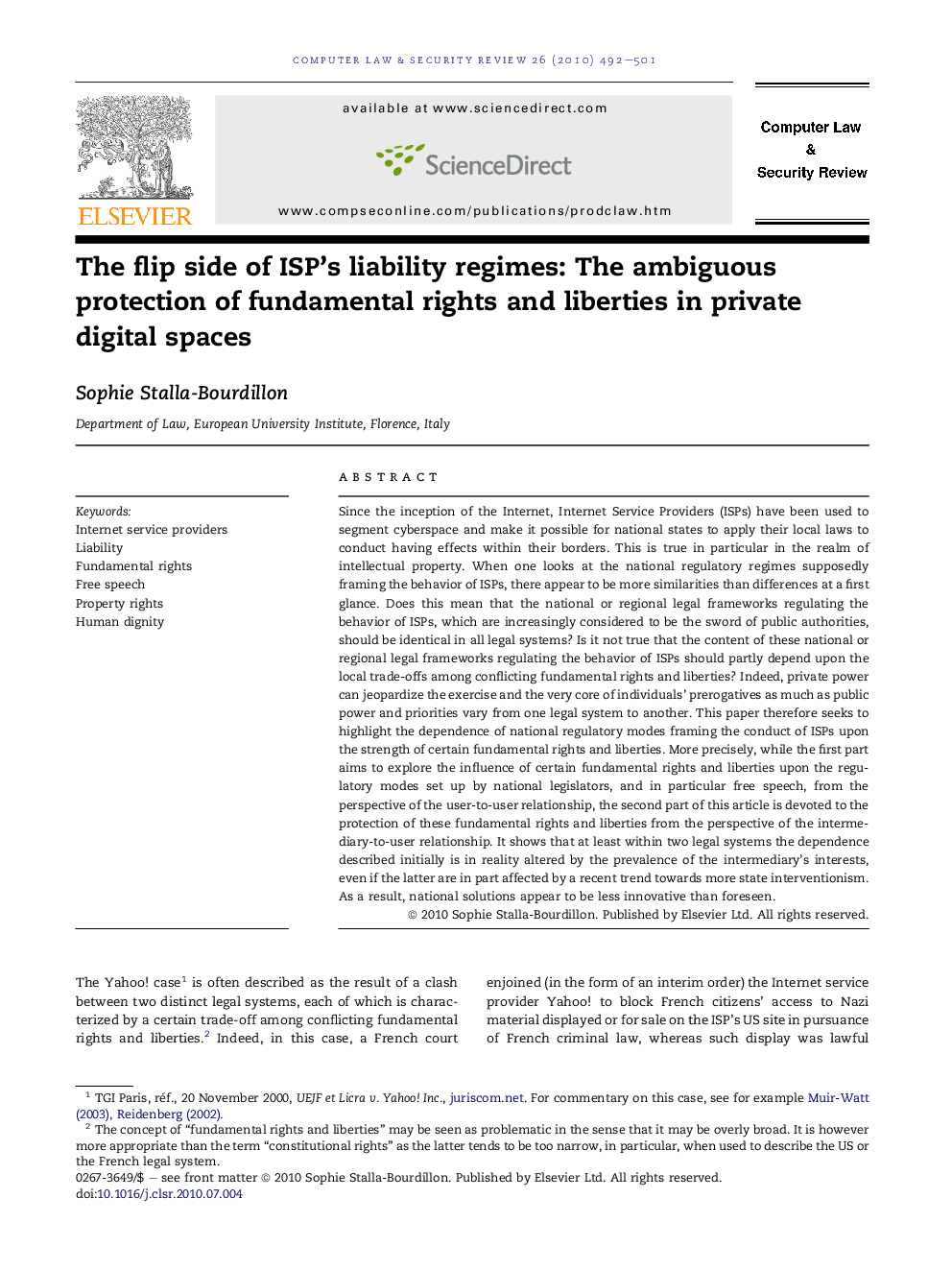| کد مقاله | کد نشریه | سال انتشار | مقاله انگلیسی | نسخه تمام متن |
|---|---|---|---|---|
| 465559 | 697630 | 2010 | 10 صفحه PDF | دانلود رایگان |

Since the inception of the Internet, Internet Service Providers (ISPs) have been used to segment cyberspace and make it possible for national states to apply their local laws to conduct having effects within their borders. This is true in particular in the realm of intellectual property. When one looks at the national regulatory regimes supposedly framing the behavior of ISPs, there appear to be more similarities than differences at a first glance. Does this mean that the national or regional legal frameworks regulating the behavior of ISPs, which are increasingly considered to be the sword of public authorities, should be identical in all legal systems? Is it not true that the content of these national or regional legal frameworks regulating the behavior of ISPs should partly depend upon the local trade-offs among conflicting fundamental rights and liberties? Indeed, private power can jeopardize the exercise and the very core of individuals’ prerogatives as much as public power and priorities vary from one legal system to another. This paper therefore seeks to highlight the dependence of national regulatory modes framing the conduct of ISPs upon the strength of certain fundamental rights and liberties. More precisely, while the first part aims to explore the influence of certain fundamental rights and liberties upon the regulatory modes set up by national legislators, and in particular free speech, from the perspective of the user-to-user relationship, the second part of this article is devoted to the protection of these fundamental rights and liberties from the perspective of the intermediary-to-user relationship. It shows that at least within two legal systems the dependence described initially is in reality altered by the prevalence of the intermediary’s interests, even if the latter are in part affected by a recent trend towards more state interventionism. As a result, national solutions appear to be less innovative than foreseen.
Journal: Computer Law & Security Review - Volume 26, Issue 5, September 2010, Pages 492–501